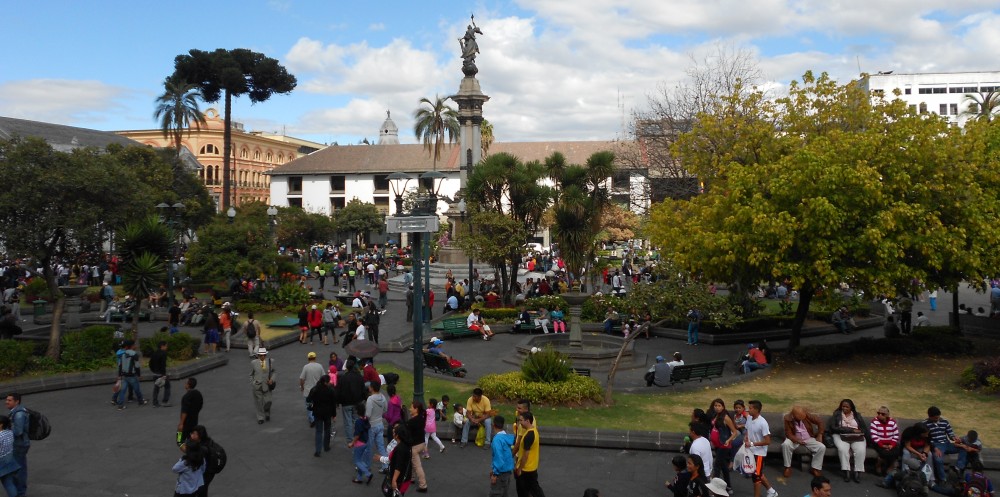In this week’s readings we learned about Latin America in the late 20th century and into the 21st century. Today, Latin America and the world faces, not only crises of poverty and inequality, but also a booming environmental crisis. On the one hand, Latin America has been targeted for their natural resources and therefore experienced much environmental degradation. Latin American countries usually have more lenient environmental policies and regulations, which makes resource extraction much easier for Western countries. On the other hand, not only Latin America, but the world is experiencing the consequences of human-induced climate change. These consequences are triggering more frequent environmental changes, like increased droughts and erratic weather, which particularly affect societies dependent on weather for agriculture. It’s frustrating to think that, although this is a global phenomenon, those countries that least contribute to the climate changing, are the ones who are, and will, experience the most severe consequences of it.
In terms of past environmental degradation, Alexander Dawson talks about Texaco’s involvement in Ecuador. Beginning in 1964, Texaco began exploring for oil in Ecuador and found that Ecuador’s Sucumbio region was oil-rich. Within a few years they began operating and exploiting the region. The Ecuadorian government was on board given that some of the oil would be used locally, and the company made some under-the-table arrangements to ignore its environmental degradation. However, today we can see that Texaco left many toxic water waste pits, polluted waters, and poisoned soils, which affected the health of many locals. In the case of Ecuador, Sucumbio residents stood up and filed a lawsuit against the company. However, this is one in hundreds of cases where the voices of those being violated are heard.
Latin America, as are other developing regions around the world, are particularly vulnerable to changes in climate. However, what stood out to me in this section was that in the face of climate change, there is also increased global awareness and local opportunities. What I mean by this is that, like the cases of Ecuador with its oil or Guatemala with its mining, locals have a greater opportunity today to voice their concerns and confront their oppressors to global spectators. This enhances international support and involvement for those who decide to “voice”, or engage, during crisis, rather than “exit”. Today Latin America may face many crises but I feel like there are also more opportunities to dealing with these crises for locals.

I like your point about how climate change can increase global awareness. It gives nations the opportunity to come together for a common cause.
I liked your observation on how climate changes have been affecting Latin America and because of oil exploitation, it accelerated a degradation of land. In addition, because of it, locals voiced their concerns to oppose global spectators, which managed to attract international support that could lead to a certain solution.